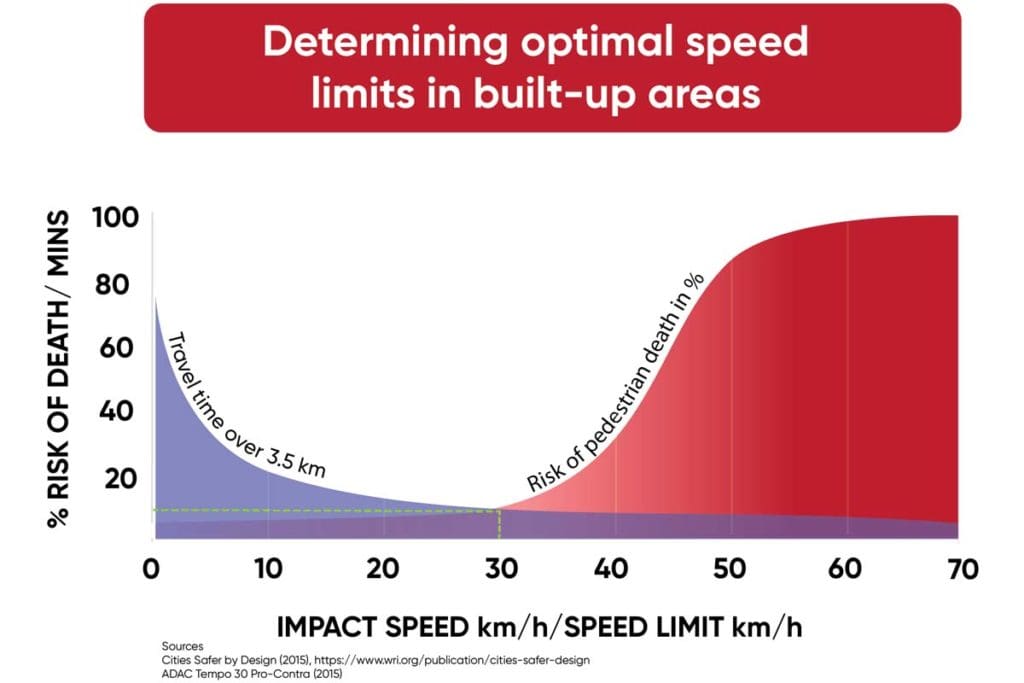Lower Speed Advocates Slam Liverpool Trial Axing

Sydney, NSW
The termination of a 30kmh speed trial in Greater Western Sydney, reverting a Liverpool thoroughfare back to 40kmh, has been condemned by road safety advocates for lower speed limits.
The founder of advocacy group 30please.org, Lena Huda, said she was saddened to hear the State Government was ending the 30kmh trial in the Liverpool CBD, following a two-year campaign by Liverpool Mayor Ned Mannoun against the lower speed limit.
“Increasing the speed limit will mean more people will end up in hospital and we can assume that someone will be killed or seriously injured in Liverpool as a consequence.”
Lena said there had been a significant reduction in serious injuries on the CBD’s roads during the trial.
“Since the 30kmh speed limits were introduced, only eight people have been injured, including two serious injuries, compared to 23 injuries and five serious injuries in the preceding 12 months,” she said.
“From a safety perspective, the trial has been a fantastic success. Increasing the speed limit will mean more people will end up in hospital and we can assume that someone will be killed or seriously injured in Liverpool as a consequence.
“Research shows that a fatal injury to a pedestrian is at least twice as likely to occur in a crash at 40kmh than at 30kmh. Overall, if average speeds are reduced by just 1kmh, road crashes are reduced by two to three percent.”
The founder of Safe Streets to School, Jon Lindley, said its campaign is continuing to push for community acceptance of 30kmh limits in local streets.
“These are used in all rich, child-friendly countries around the world to keep children safe in traffic and enable them to walk or ride to school, to explore their neighbourhoods independently,” Jon said.
“Making 30kmh the norm and not the exception in local streets is the best way to achieve a general change in driver behaviour. Restricting the city’s speed limits to 20mph (30kmh) without extra traffic-calming measures and police patrols has reduced road deaths by almost a quarter in Edinburgh.
“A piecemeal approach to safe 30kmh speeds, like we see in NSW, is not the best way to change behaviour. Small, isolated zones like in Liverpool with lots of through-traffic are a difficult place to start to build community acceptance.
“Rolling out 30kmh limits in residential neighbourhoods with no through traffic will get more community buy-in.”
Lena said the trial was undermined by a lack of accompanying community education.
“There is also a complete lack of education campaigns about why we need to move on to 30kmh limits in local streets like the rest of the world,” she said.
“When we heard about the problems surrounding the Liverpool trial, we offered the council and the Centre for Road safety to deliver community education campaigns to the schools in the area.
“This approach is taken by UK councils when they roll out 20mph (30kmh) speed limits.
“Unfortunately, the approach taken in Liverpool was to send out speeding fines instead of educating the community of why 30kmh limit are needed to keep our children safe – for example when they cross a street.”
Lena suggested it is time to move on to better ways to enforce speed limits.
“In the European Union, all new cars are mandated to have technology on board that helps drivers to comply with the speed limit,” she said.
“This is a low-cost, effective technology called Intelligent Speed Assist. By using sign-reading cameras and digital maps of speed limit data, the car can cut engine torque automatically to keep the vehicle within the current speed limit.
“Speed is such an important factor in road deaths that this technology alone, if it were fitted to all cars on the road in this form, could cut deaths by 20%.”
